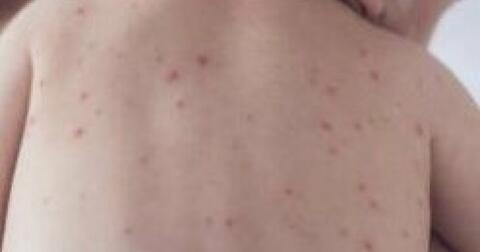The New Jersey Department of Health is warning residents that an international traveler with measles may have exposed others in New Jersey.
According to authorities, on Dec. 24th, an international traveler who has been confirmed to have measles — a highly contagious disease — arrived in Terminal B at Newark Liberty International Airport on a flight from Brussels.
Officials say the individual was infectious on that day and may have traveled to other areas of the airport. If you were in the airport on Dec. 24 between 12 p.m. and 4 p.m., you may have been exposed to measles and, if infected, could develop symptoms as late as Jan. 14.
New Jersey residents identified as potentially exposed on the ill individual’s flights will be notified by their local health department.
Anyone who suspects an exposure is urged to call a health care provider before going to a medical office or emergency department. Special arrangements can be made for evaluation while also protecting other patients and medical staff from possible infection.
“This confirmed case and exposure are unrelated to the ongoing measles outbreak in Ocean County, which includes 30 Ocean County cases and 3 Passaic County cases,” said New Jersey Health Commissioner Dr. Shereef Elnahal. “Two doses of measles vaccine are about 97 percent effective in preventing measles, so I urge all residents across the state to get vaccinated to protect their health.”
Measles symptoms include rash, high fever, cough, runny nose and red, watery eyes. It can cause serious complications such as pneumonia and encephalitis (swelling of the brain). Measles infection in a pregnant woman can lead to miscarriage, premature birth or a low-birth-weight baby. Measles is easily spread through the air when someone coughs or sneezes. People can also get sick when they come in contact with mucus or saliva from an infected person.
“Anyone who has not been vaccinated or has not had measles is at risk if they are exposed,” said Dr. Christina Tan, state epidemiologist. “We urge everyone to check to make sure they and their family members are up-to-date on measles/mumps/rubella (MMR) vaccine and all other age-appropriate immunizations.
“Getting vaccinated not only protects you, it protects others around you who are too young to get the vaccine or can’t receive it for medical reasons. If you’re planning an international trip, the World Health Organization recommends that adults or adolescents unsure of their immune status get a dose of measles vaccine before traveling,” Dr. Tan added.
